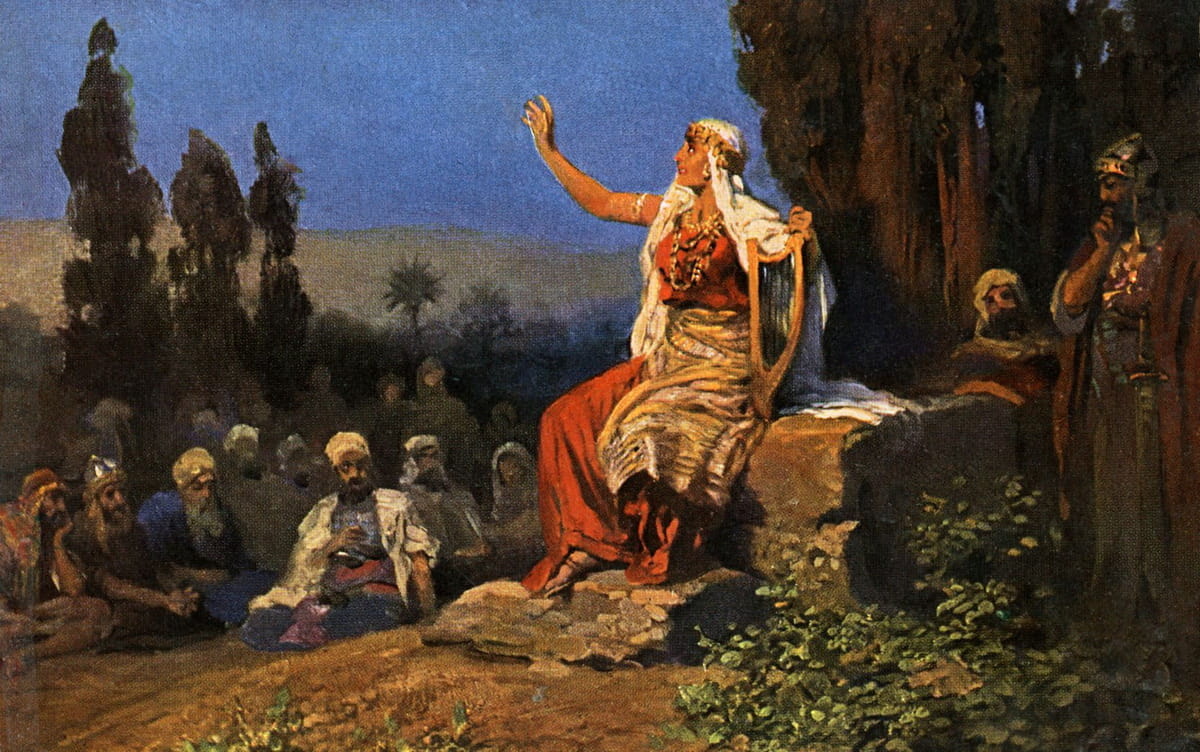Exploring the Bible unveils a tapestry of characters whose actions echo through history. David, a shepherd, became renowned for his music skills in 1000 BC, easing King Saul’s torment. Esther, in the 5th century BC, risked everything to save her people, altering the course of a nation. Noah’s Ark, a feat of ancient engineering, highlights the complexity of early shipbuilding techniques.
Around 13th century BC, Moses’ leadership culminated in the miraculous parting of the Red Sea, a symbol of liberation and faith. These stories, grounded in historical contexts, offer fascinating insights into human resilience and ingenuity. These fun facts about Bible characters provide a glimpse into the depth and richness of these ancient narratives, revealing their enduring impact on culture and faith.
1. David’s Harp Skills and King Saul’s Relief
David’s musical talents are documented in the Bible (1 Samuel 16:23). Historically, this period corresponds to around 1000 BC in ancient Israel. David used his harp to soothe King Saul, afflicted by a distressing spirit. This incident is one of the earliest records of music used for psychological relief.
Harps from this era, uncovered through archaeological research, indicate a sophistication in instrument design, suggesting a developed musical culture in David’s time.
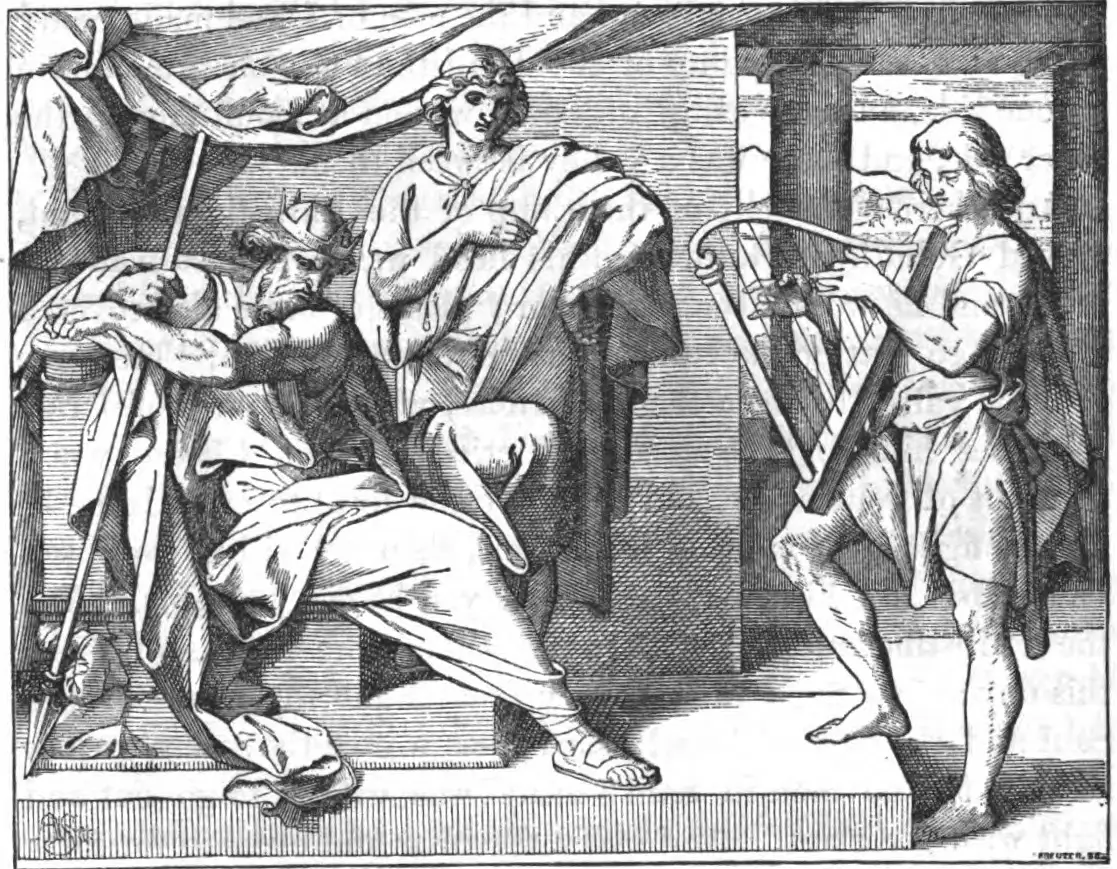
Image: Wikimedia Commons
2. Esther’s Courage and a Nation’s Destiny
Esther’s story is set in the Achaemenid Empire under King Xerxes I, around 486-465 BC. The Book of Esther describes her bravery in approaching the king unsummoned, a move that could have led to her execution. Her actions not only prevented the planned genocide of her people but also reshaped the Jewish community’s future in the Persian Empire.
Esther’s feast, Purim, is celebrated annually in her honor, commemorating this pivotal moment in Jewish history.
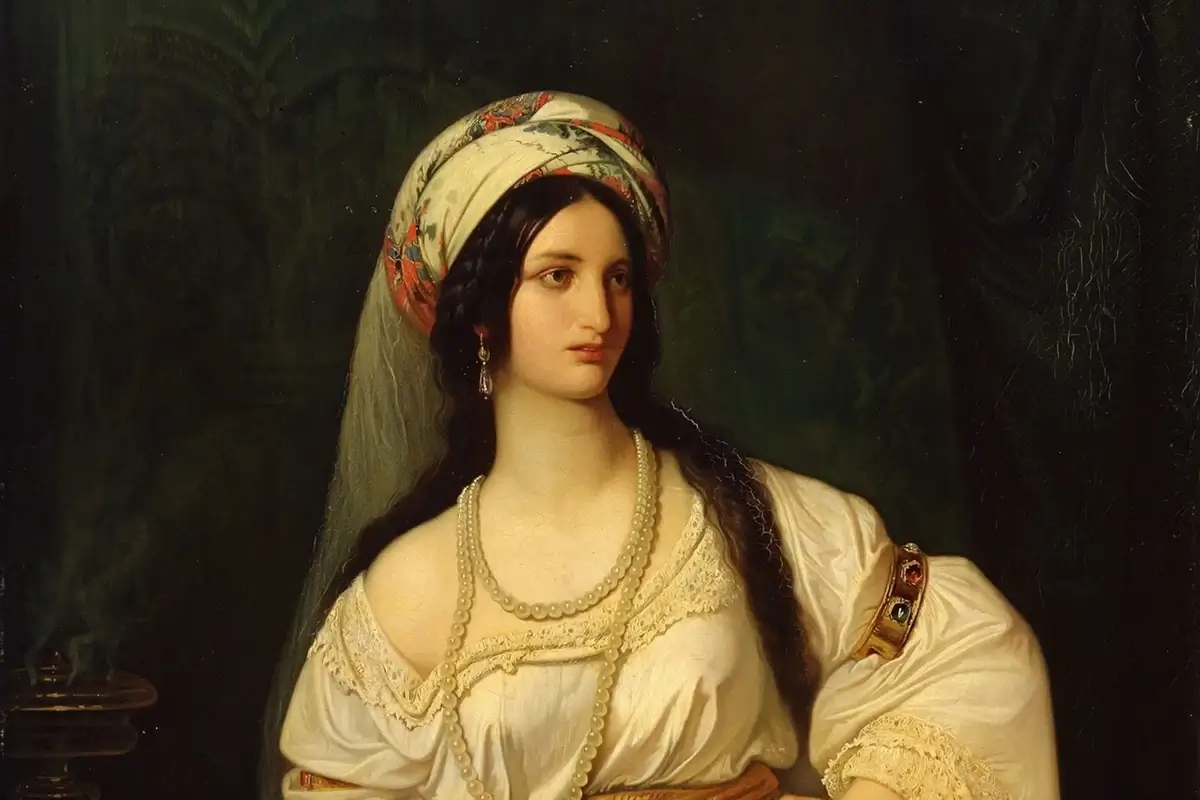
Image: nationalgeographic.com
3. Noah: Architect of the Ark
Noah, a significant figure in the Book of Genesis, is renowned not just for his righteousness but also as the architect of the Ark, a colossal feat of ancient engineering. According to Genesis 6:15, Noah built the Ark following God’s instructions, with dimensions approximately 450 feet long, 75 feet wide, and 45 feet high. This construction, around 2348 BC, showcases Noah’s compliance with divine guidance and his remarkable skill in shipbuilding.
The Ark, designed to house various species during the great flood, reflects Noah’s understanding of not only architectural design but also of animal care and biodiversity. His commitment to preserving life, as instructed by God, marks him as a steward of creation and a figure of obedience and resilience in the face of adversity.
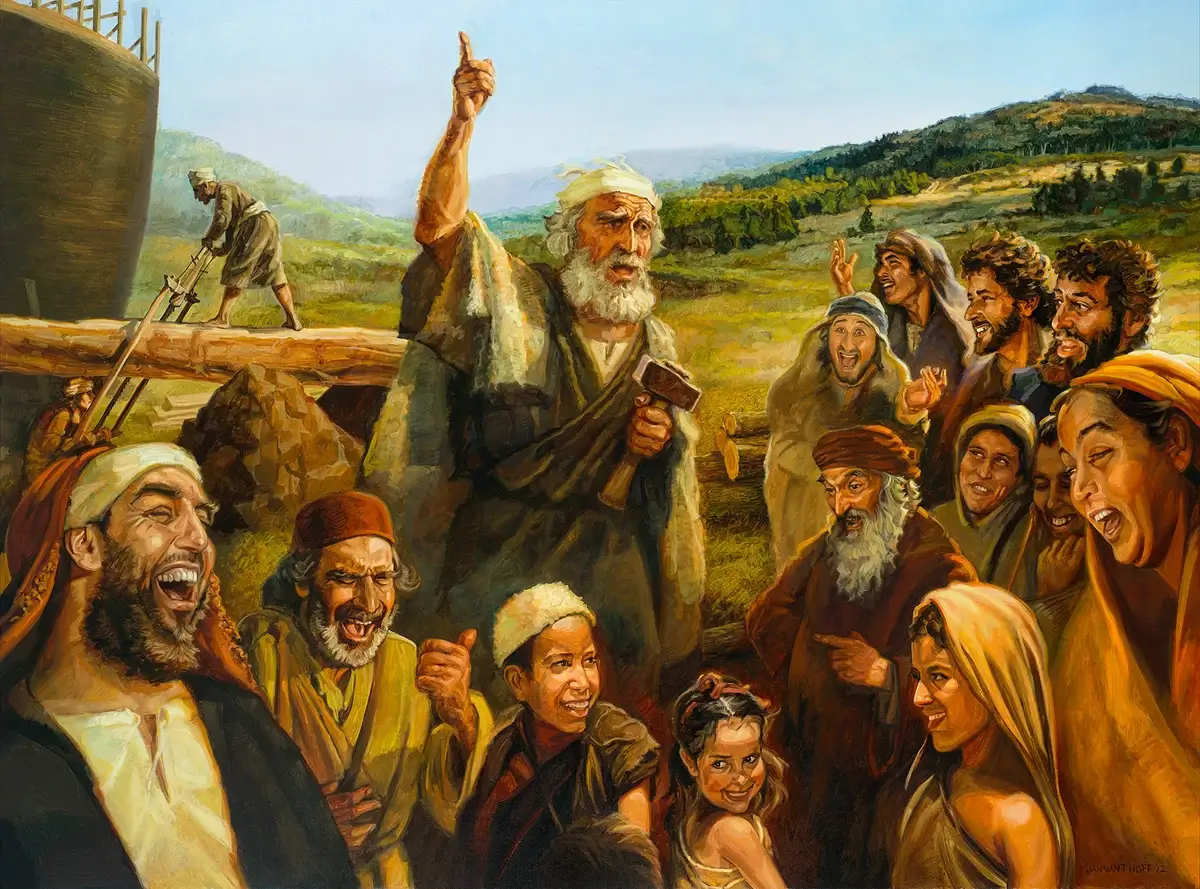
Image: mavink.com
4. Moses: Leadership and the Red Sea Miracle
The parting of the Red Sea, described in Exodus 14, is estimated to have occurred around the 13th century BC. This event exemplifies Moses’s leadership and the Israelites’ journey from bondage to freedom. While the parting of the sea is considered a miracle, some scholars propose natural explanations, such as a strong east wind revealing a land bridge temporarily.
This narrative underscores Moses’s role as a pivotal figure in Jewish history, showcasing his faith, courage, and unyielding determination in leading his people to freedom.
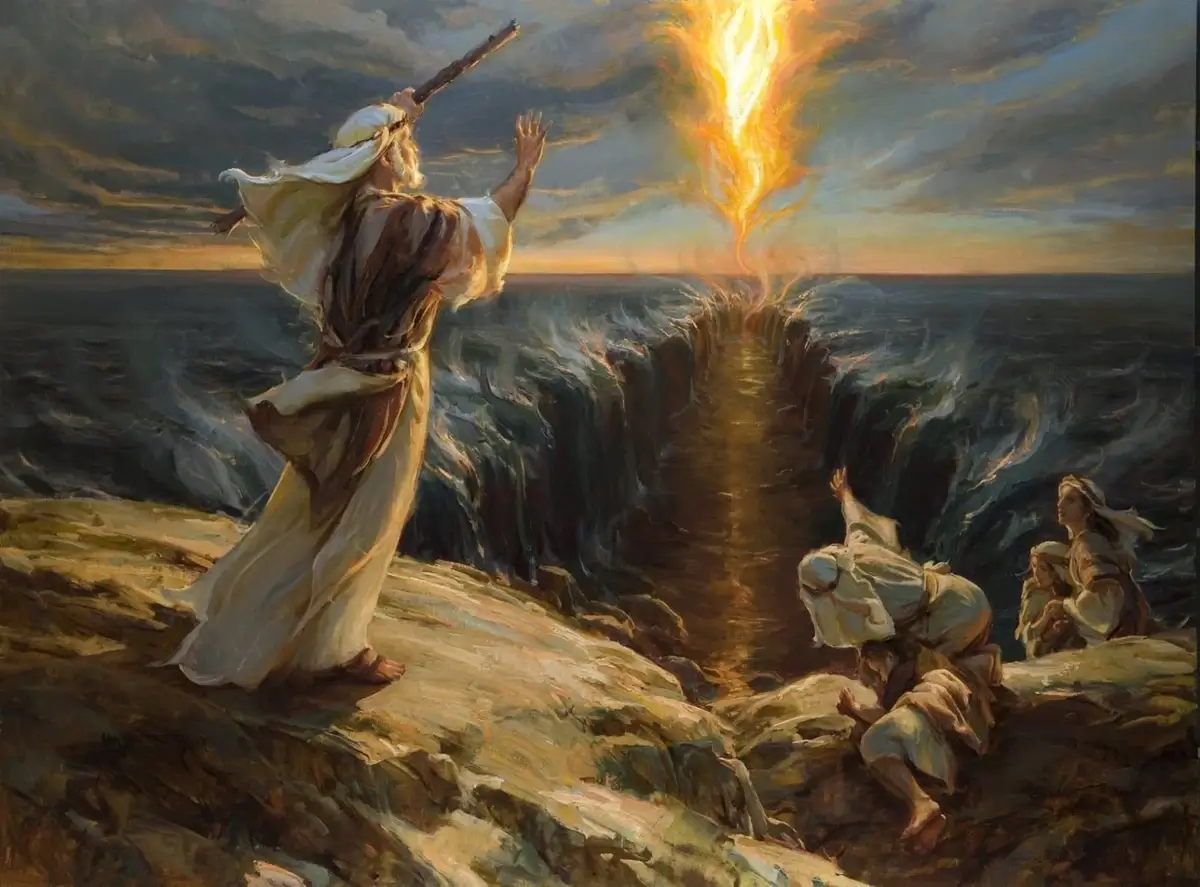
Image: Pinterest
5. Ruth’s Loyalty and Family Devotion
Ruth, a Moabite widow, is celebrated for her unwavering loyalty to her mother-in-law, Naomi. Her story, set during the time of the Judges, around 1200-1020 BC, is a poignant example of familial devotion. Choosing to stay with Naomi instead of returning to her own people, Ruth’s actions led to her becoming the great-grandmother of King David, thereby linking her to the lineage of Jesus.
Ruth’s story, encapsulated in the Book of Ruth, is a testament to love, loyalty, and the strength of family ties across cultural boundaries.
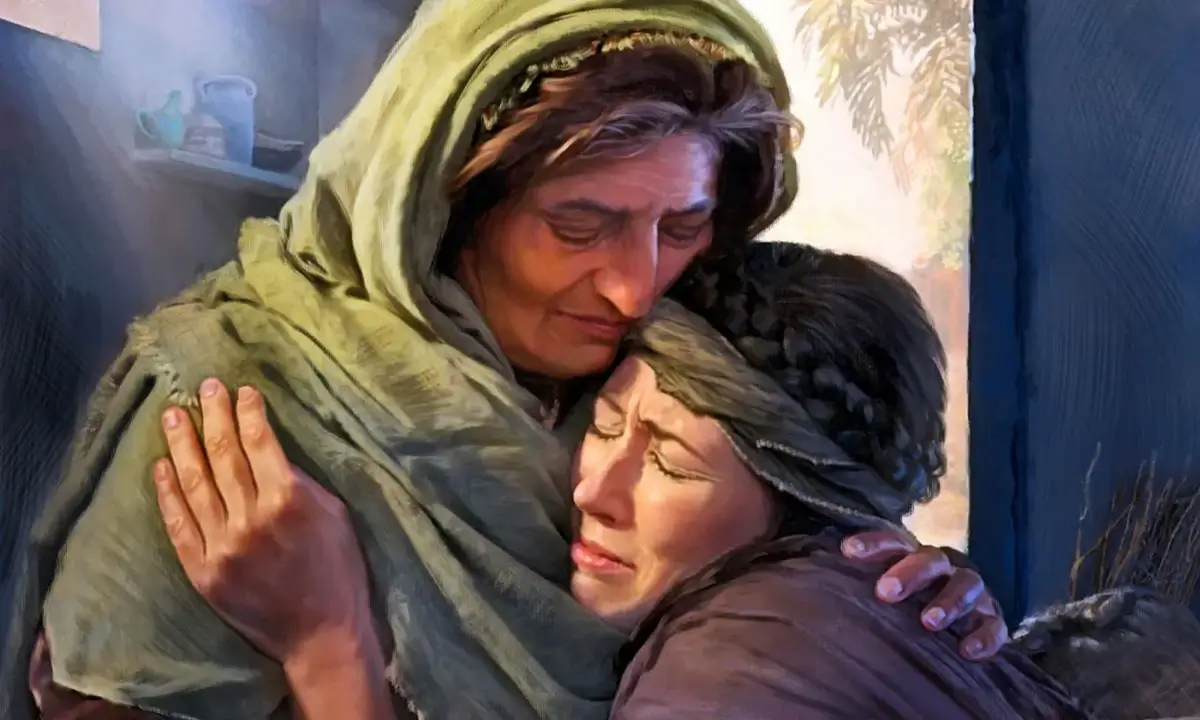
Image: reporter-times.com
6. The Mystery of Samson’s Strength
Samson, a judge of Israel, is known for his extraordinary strength, as narrated in the Book of Judges, chapters 13-16. His strength was attributed to his uncut hair, a vow as a Nazirite dedicated to God.
Historical interpretations suggest Samson’s story could date back to around 1100 BC. His feats, like slaying a lion and toppling a Philistine temple, symbolize his role as a protector of Israel.
The story of Samson encapsulates themes of faith, betrayal, and redemption, reflecting the complex human dynamics of strength and weakness.
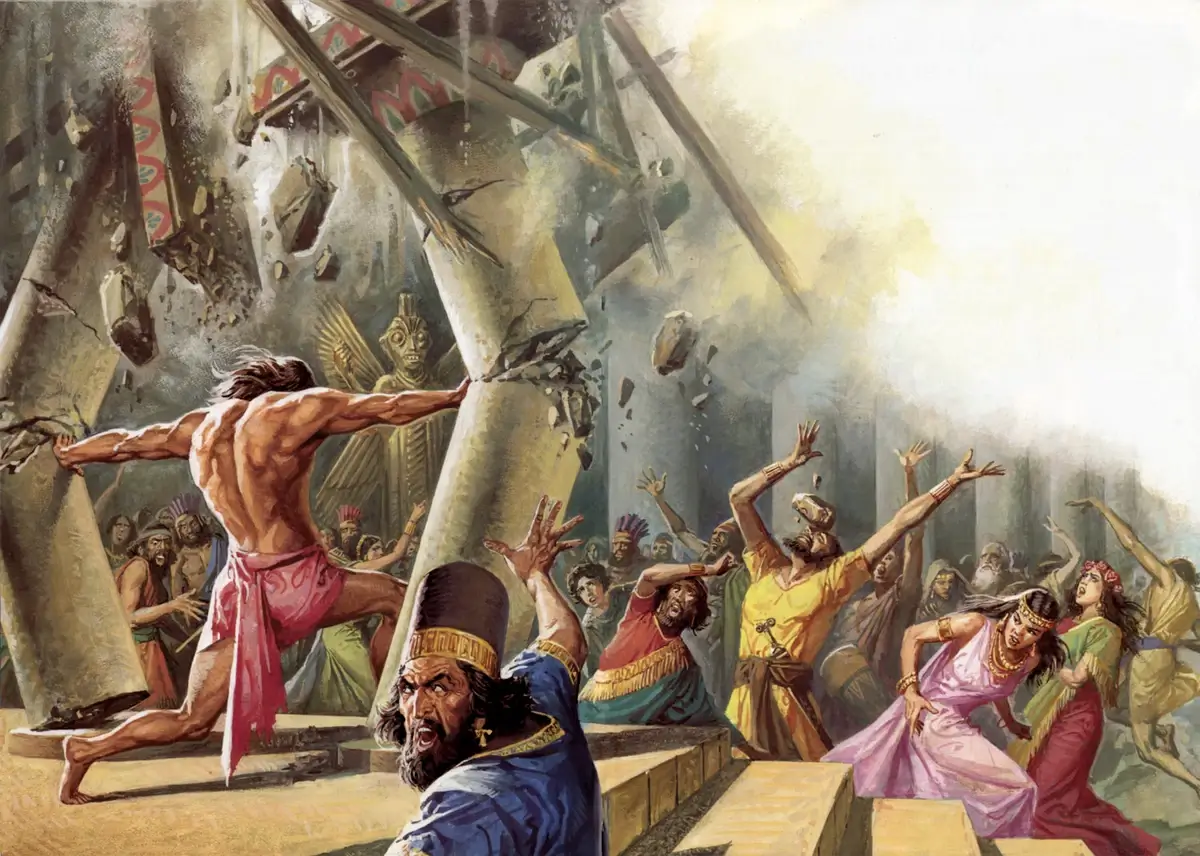
Image: knowingscripture.com
7. King Solomon’s Legendary Wisdom
King Solomon, ruling Israel around 970-931 BC, is renowned for his wisdom, a gift from God as described in 1 Kings 3. One of his most famous judgments involved discerning the true mother of a child by suggesting to divide the baby, revealing the real mother’s compassion.
Solomon’s era is marked by peace and prosperity, and he is credited with building the First Temple in Jerusalem. His wisdom, diplomacy, and administrative skills contributed significantly to the cultural and economic flourishing of Israel during his reign.
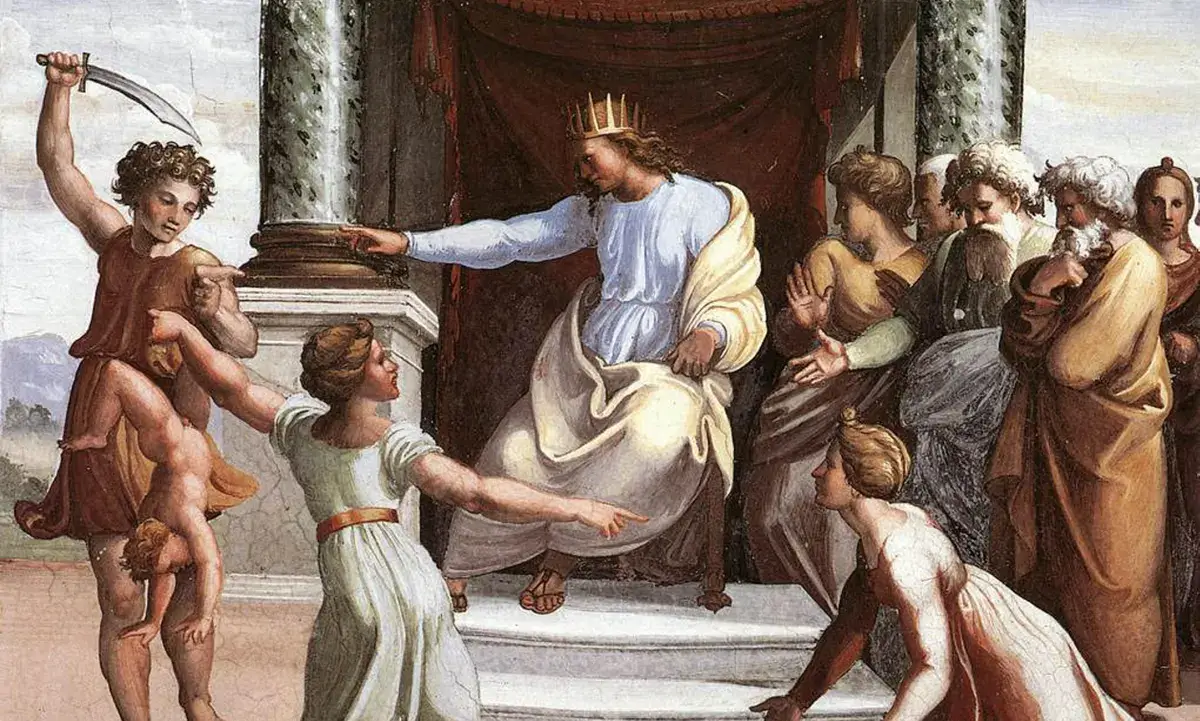
Image: theguardian.com
8. The Story Behind Joseph’s Colorful Coat
Joseph, a key figure in Genesis, received a coat of many colors from his father, Jacob. This coat, a symbol of Jacob’s favoritism, ignited jealousy among Joseph’s brothers, leading to his eventual enslavement in Egypt.
The timeline of Joseph’s story is traditionally placed around the 16th to 15th century BC. Joseph’s coat, while a source of conflict, also signifies his unique destiny.
His journey from slavery to becoming a powerful Egyptian official is a narrative of resilience, forgiveness, and divine providence, highlighting the complexities of family dynamics and destiny.
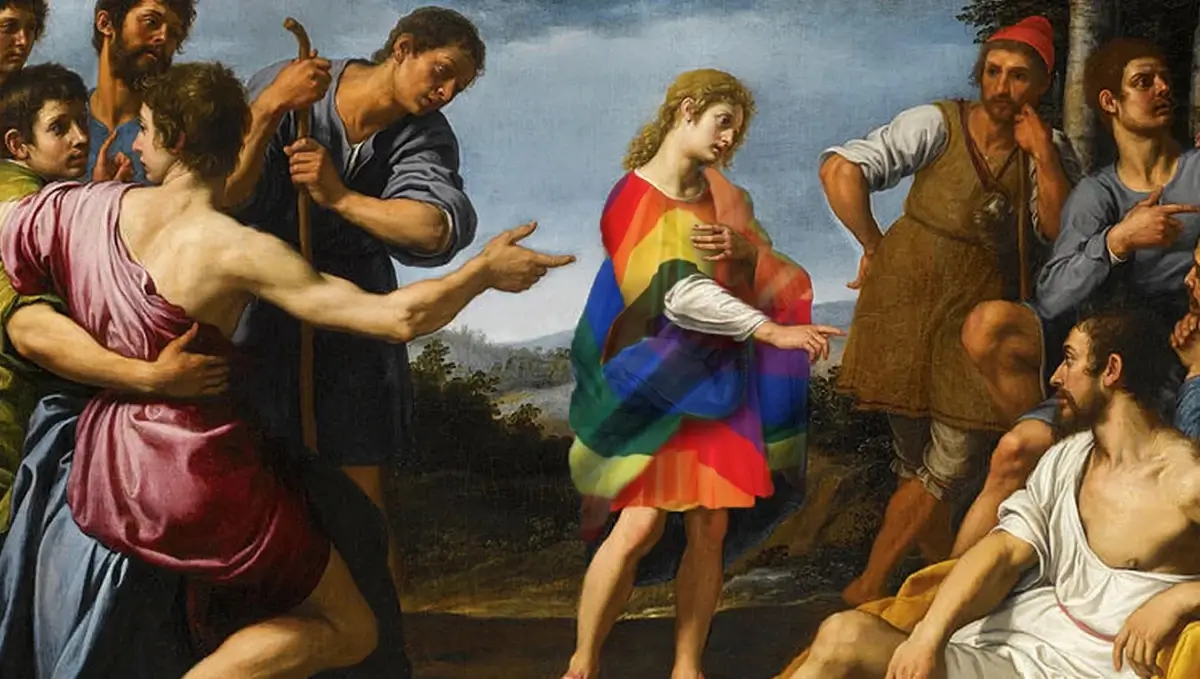
Image: babylonbee.com
9. Jonah’s Survival in the Whale
Jonah’s ordeal inside a whale, as described in the Book of Jonah, is one of the most extraordinary narratives in the Bible. This event, believed to have occurred in the 8th century BC, symbolizes rebirth and repentance. Jonah, initially fleeing his prophetic mission, finds redemption in the belly of the whale.
This three-day entrapment and subsequent survival are seen as a metaphor for transformation and obedience to divine will. Jonah’s story is not just a tale of survival, but a lesson in humility and the acceptance of one’s destiny.
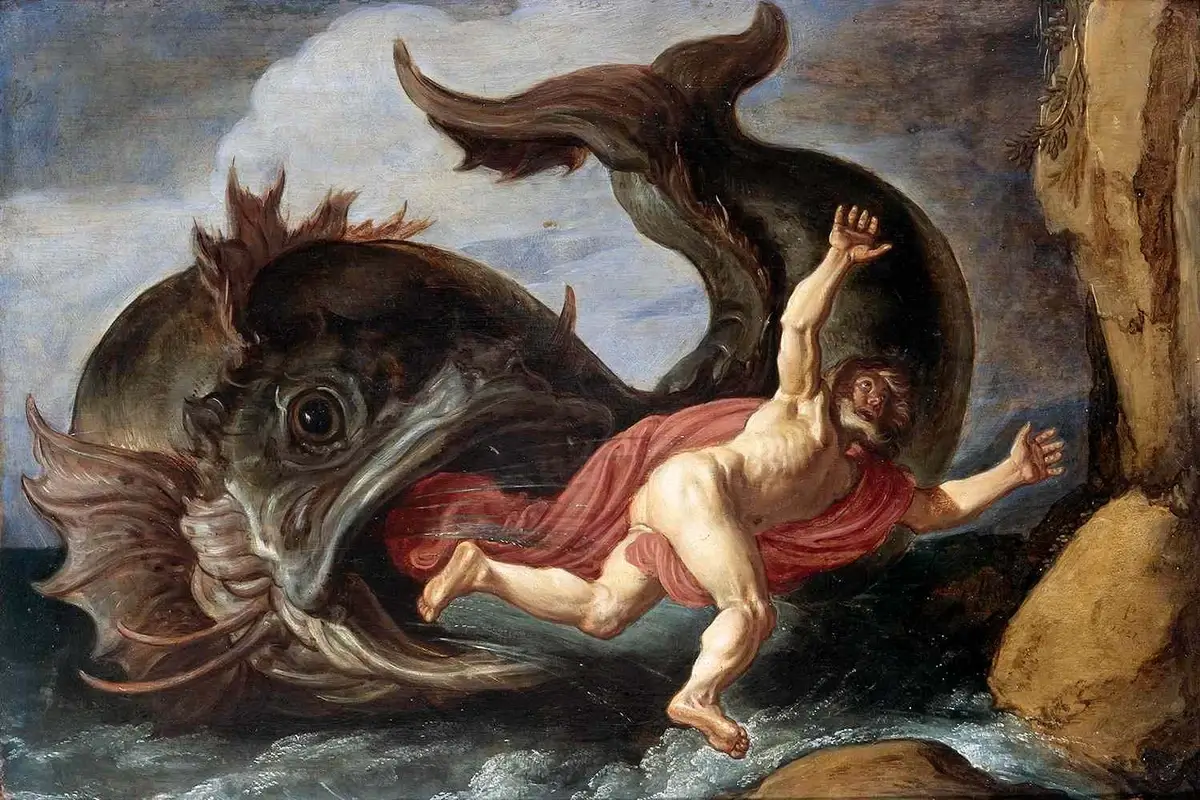
Image: learnreligions.com
10. Mary Magdalene’s Devotion and Influence
Mary Magdalene, a prominent figure in the New Testament, is celebrated for her unwavering devotion to Jesus Christ. Her presence at key events, such as the crucifixion and resurrection, cements her role as a vital disciple.
Thought to have lived in the 1st century AD, Mary’s portrayal in the Gospels highlights her significant influence in the early Christian community. Her story, often clouded by misconceptions, is fundamentally one of transformation, devotion, and leadership, offering insights into the role of women in early Christianity.
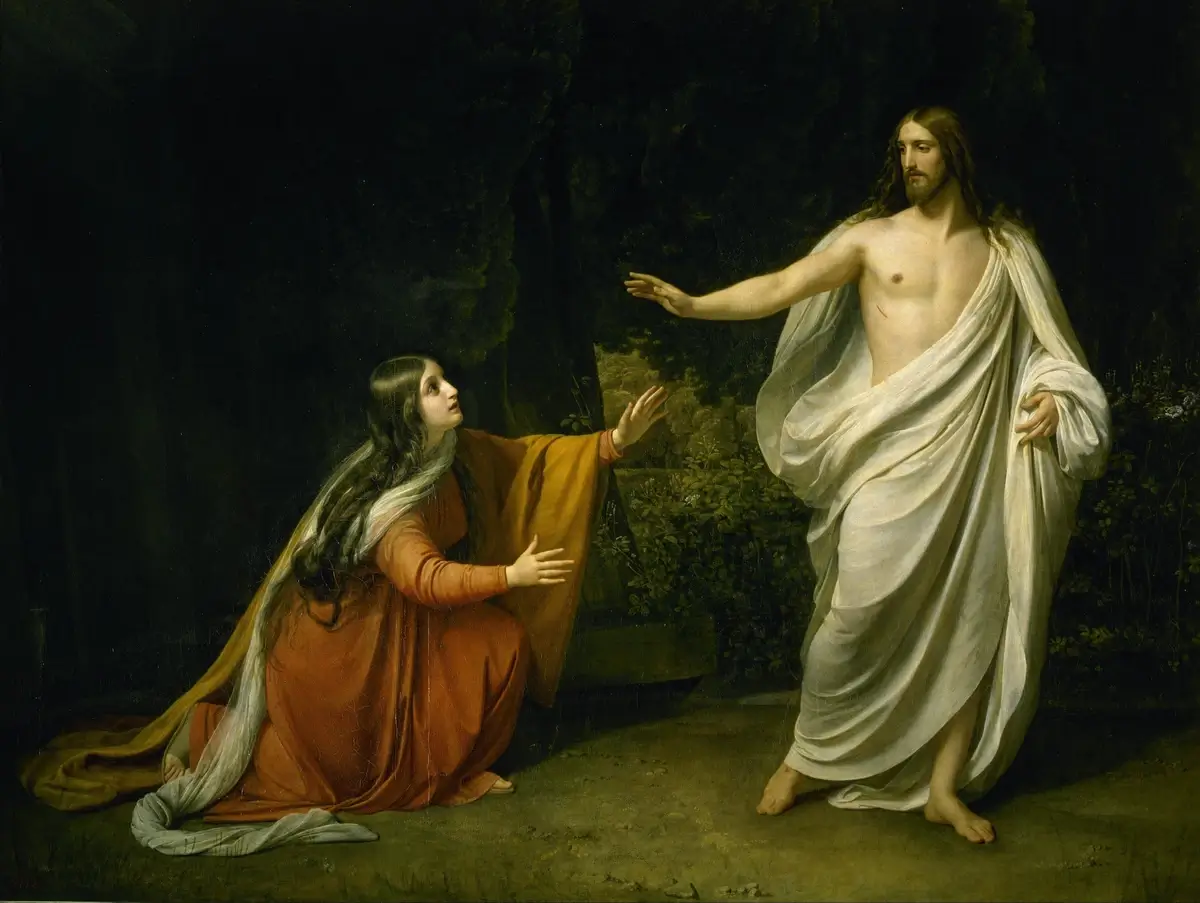
Christ’s Appearance to Mary Magdalene after the Resurrection. Image: wikipedia.org
11. The Good Samaritan’s Lesson in Love
The parable of the Good Samaritan, told by Jesus in the Gospel of Luke, is a powerful lesson in love and compassion. Set in the 1st century AD, it breaks down societal and ethnic boundaries, showcasing a Samaritan who helps a beaten Jew, defying prevailing prejudices.
This story emphasizes the universal call to love and care for one’s neighbor, regardless of their background. The Good Samaritan has become synonymous with selfless assistance, influencing various aspects of culture and ethics, and continues to inspire acts of kindness across the world.
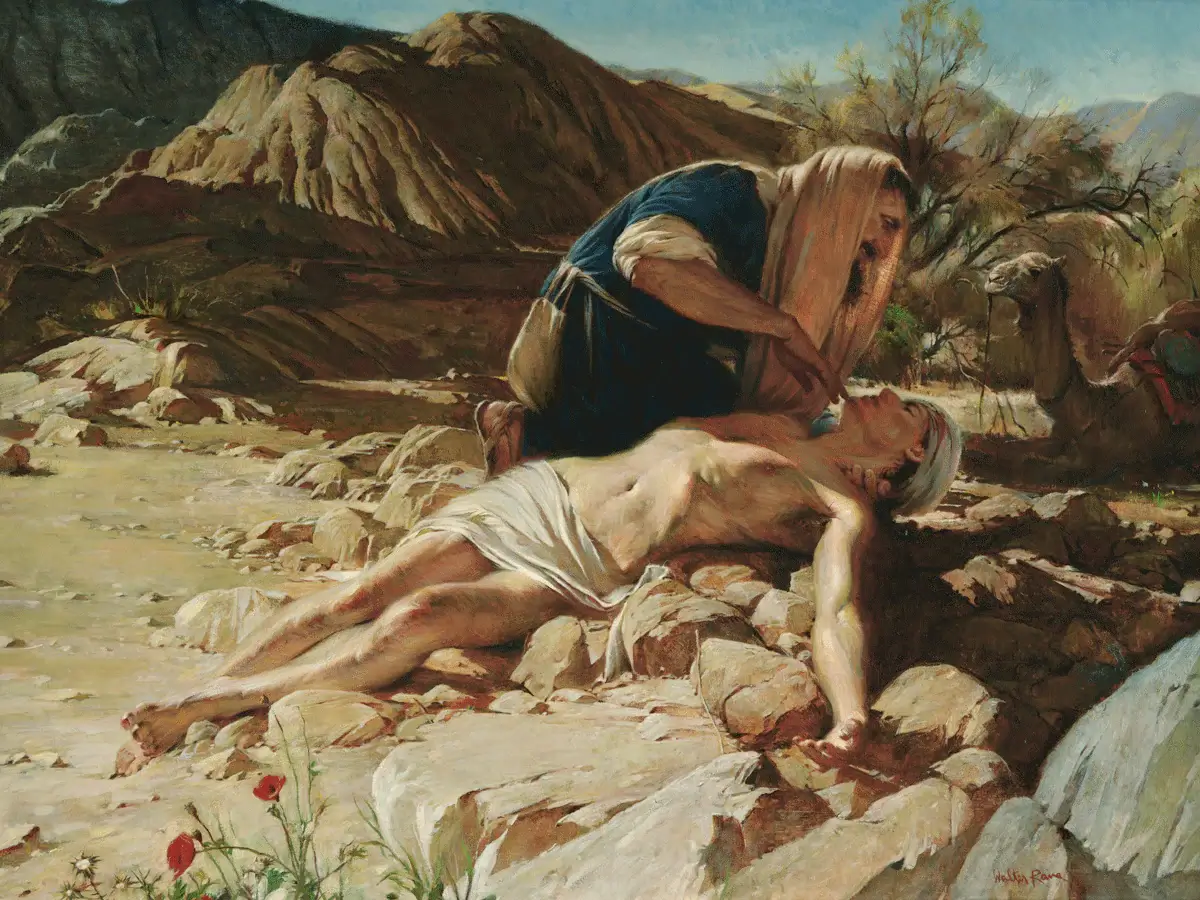
Image: walterraneprints.com
12. Paul’s Dramatic Road to Conversion
Paul’s conversion, a pivotal moment in Christian history, occurred on the road to Damascus around mid-1st century AD. Initially a persecutor of Christians, Paul experienced a dramatic transformation after a vision of Jesus Christ, leading to his unwavering commitment to spreading Christianity.
This event marks a significant turning point in the New Testament, as Paul’s missionary journeys and writings profoundly influenced the development and spread of early Christianity. His conversion underscores themes of redemption and the power of personal transformation.
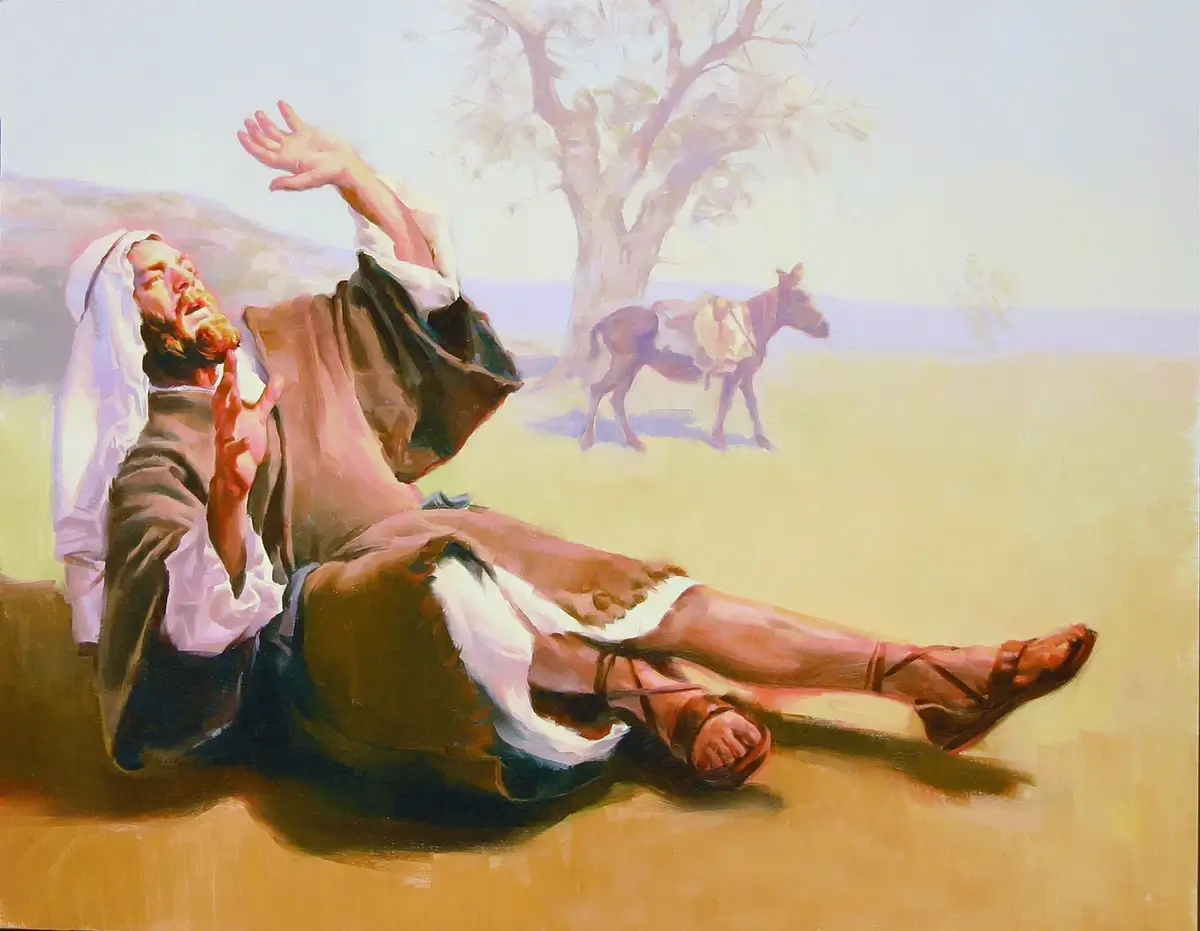
Image: nationalvanguard.org
13. Abraham: Father of Nations
Abraham, originally Abram, is a central figure in the Abrahamic religions, including Judaism, Christianity, and Islam. His story begins in Ur of the Chaldeans, around 2000 BC. Abraham is renowned for his unwavering faith in God, who promises to make him the father of many nations (Genesis 17:5).
His journey, marked by trials like the near-sacrifice of his son Isaac, symbolizes faith, obedience, and the beginnings of a covenantal relationship between God and his people.
Abraham’s legacy is profound, shaping the religious and historical landscape of numerous cultures and faiths.
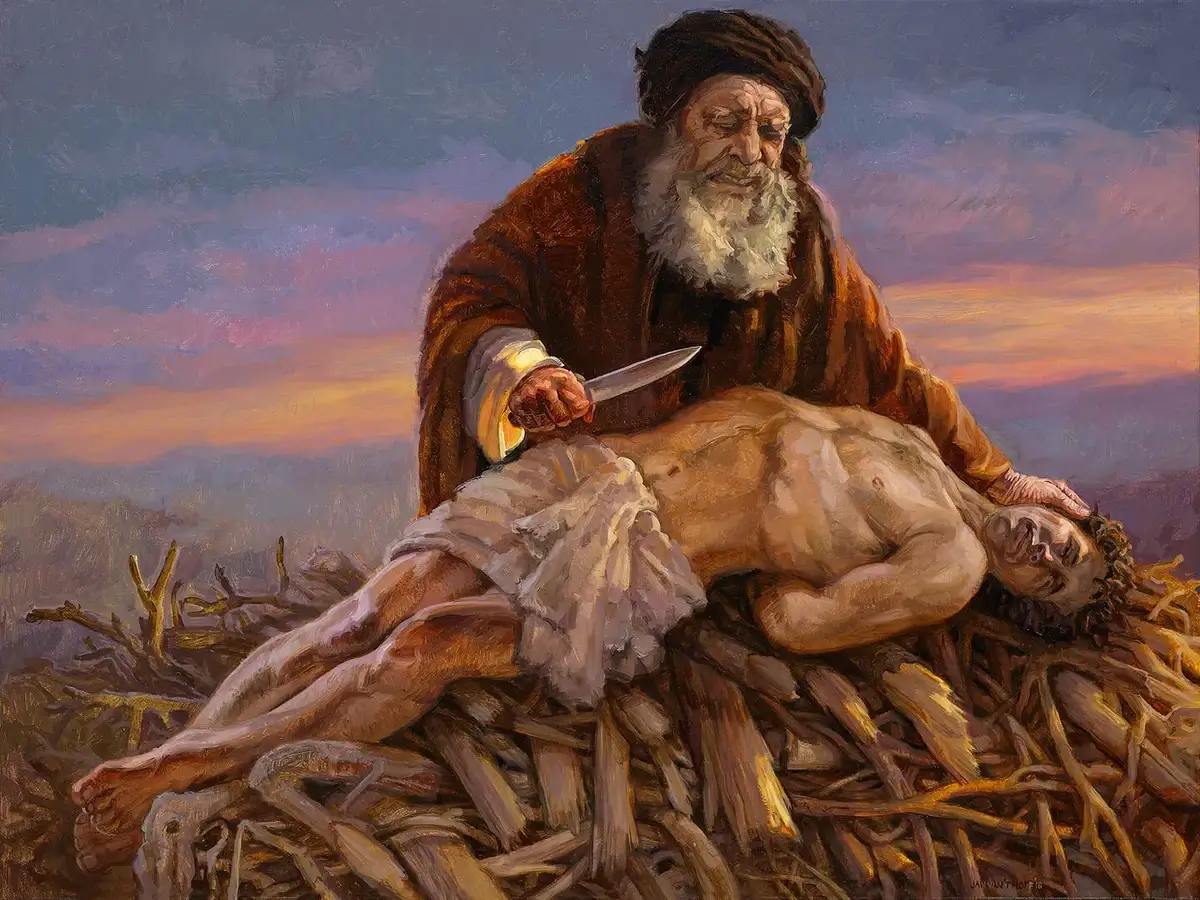
Image: medium.com
14. Gideon: Reluctant Hero
Gideon, a judge of Israel, is a prime example of humble beginnings leading to great leadership. His story, found in Judges 6-8 and dated around 1200 BC, begins with Gideon threshing wheat in a winepress to hide from the Midianites.
Called by God to deliver Israel, Gideon initially doubts his ability to lead. However, through a series of signs from God, including the famous fleece test, Gideon gains confidence.
His victory over the Midianites with just 300 men is a testament to his faith and strategic prowess, proving that strength often comes in unexpected forms.
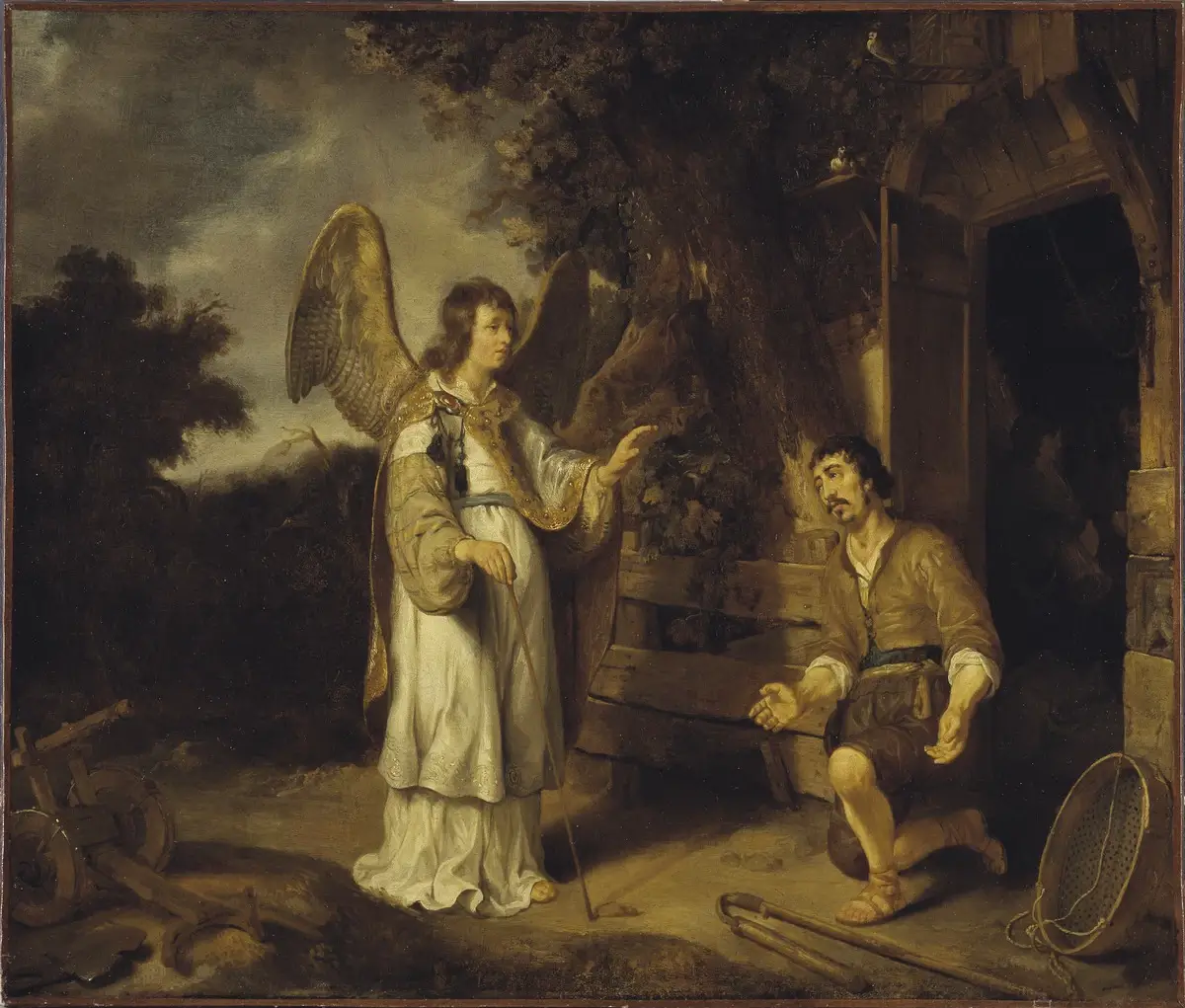
Image: wikidata.org
15. Ezekiel: Prophet of the Exile
Ezekiel, a prophet during the Babylonian exile (6th century BC), is known for his vivid visions and prophecies. One of his most famous visions is the Valley of Dry Bones (Ezekiel 37), symbolizing the hope and restoration of Israel.
Ezekiel’s role was to convey God’s messages to the Israelites during a time of despair, offering both judgments and promises of restoration.
His prophetic book is rich with symbolism and apocalyptic imagery, reflecting the tumultuous period of the Babylonian captivity and offering hope for a future return to their homeland.
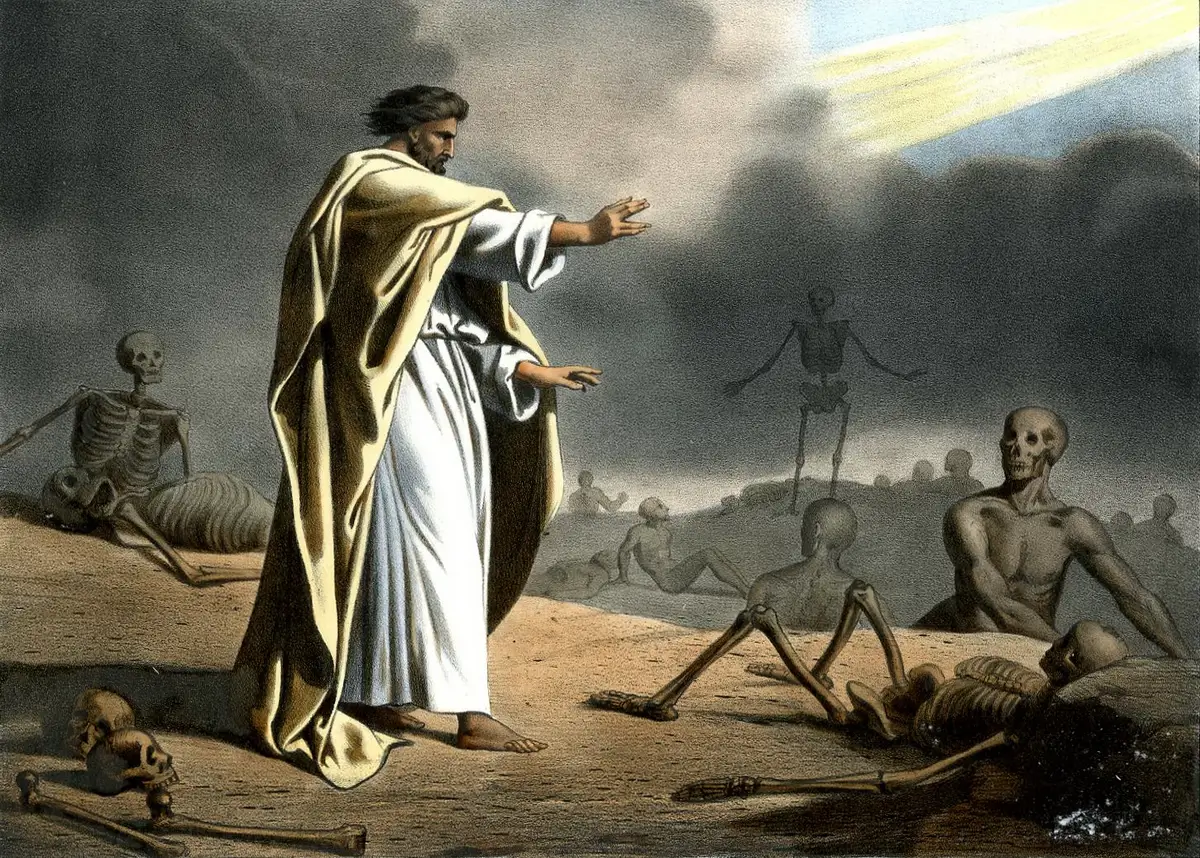
Image: Wikimedia Commons
FAQ
Who is the most famous biblical character?
The most famous biblical character is arguably Jesus Christ, central to the Christian faith. He is the figure around whom the New Testament is centered, described as a teacher, healer, and the Son of God. His life, death, and resurrection are foundational to Christian beliefs and have had a profound impact on history, culture, and religious thought worldwide.
Who is the longest living Bible character?
The longest living character in the Bible is Methuselah, who lived for 969 years according to the Book of Genesis (Genesis 5:27). He is often cited in discussions about longevity and is part of the genealogy leading to Noah.
Who was the most intelligent character in the Bible?
Intelligence can be interpreted in various ways in the Bible, but King Solomon is often credited as being the most intelligent. Known for his wisdom, Solomon’s intelligence is highlighted through his decisions, writings, and his ability to understand and discern complex matters. His wisdom is most famously demonstrated in the story where he resolves a dispute over the maternity of a child by suggesting to divide the baby, revealing the true mother through her reaction.
Who was never born and never died in the Bible?
Melchizedek, mentioned in the Book of Genesis and Psalms, is a character who appears to have neither recorded birth nor death. In Genesis 14:18-19, he is described as the king of Salem and a priest, but his lineage or demise is not detailed. This lack of genealogical information makes him a figure of significant interest and mystery in biblical scholarship.
Which Bible character had wisdom?
King Solomon is most notably associated with wisdom in the Bible. His wisdom was said to be a gift from God, and it is exemplified in various accounts within the scriptures, particularly in the Books of Kings and Proverbs. Solomon’s ability to impart wise teachings and make judicious decisions has made him synonymous with the concept of biblical wisdom.


